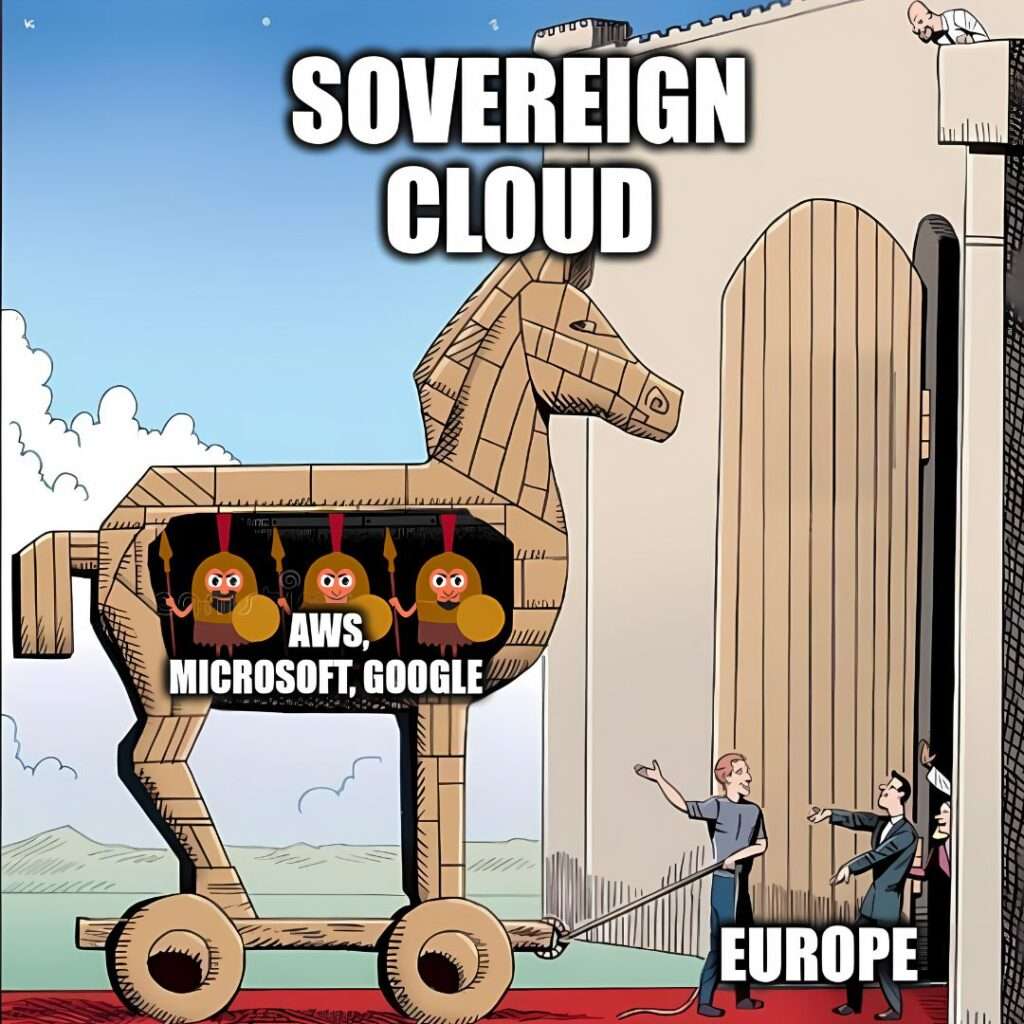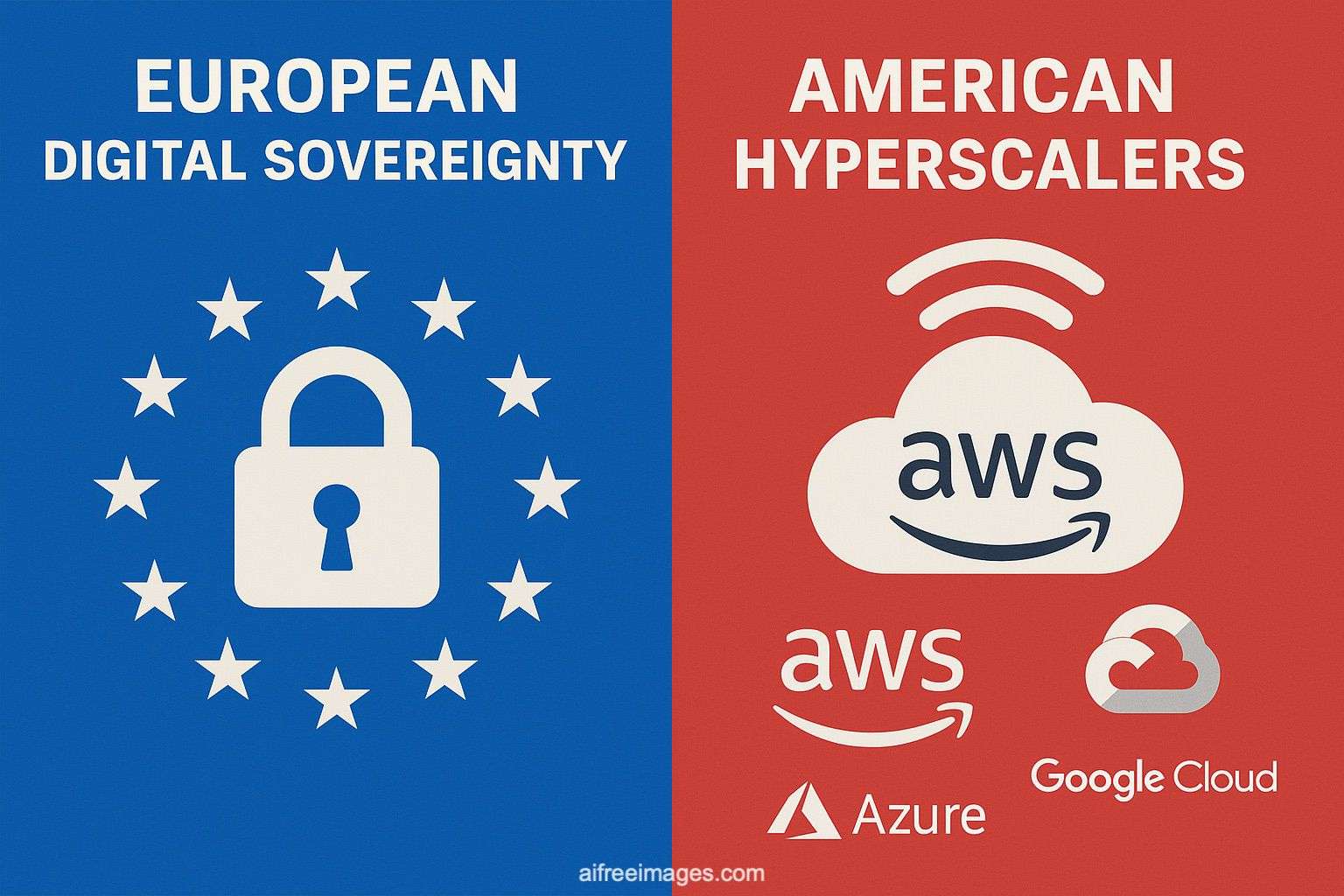At a time when digital sovereignty has become a strategic priority for the European Union, one fact stands out: 72% of European organizations say that controlling their data is essential, yet more than 70% still depend on hyper-scale U.S. cloud services such as Microsoft Azure, Amazon Web Services (AWS), or Google Cloud. This dependency raises legal and strategic concerns that Brussels has been warning about for years: can Europe ensure the protection of its data when the infrastructure is controlled by companies subject to foreign laws like the US CLOUD Act?
The Risks of CLOUD Act and U.S. Extraterritorial Laws
Enacted in 2018, the Clarifying Lawful Overseas Use of Data Act (CLOUD Act) grants U.S. authorities the ability to request data from companies based in the U.S., even if stored on servers located outside the country.
This means that, even if a data center is physically in Europe, the information could be exposed to U.S. jurisdiction if managed by an American company.
Microsoft itself has acknowledged that, under current legislation, it cannot guarantee complete sovereignty for its European customers.
Meanwhile, AWS announced the European Sovereign Cloud, an infrastructure “operated exclusively by EU personnel and located within the community territory.” However, digital legal experts warn that as long as ownership remains American, the legal risk posed by the CLOUD Act does not fully disappear.
Nextcloud Enterprise: An Immediate Digital Sovereignty Model
Facing this scenario, European solutions like Nextcloud Enterprise offer a tangible, operational alternative for public institutions and companies seeking technological independence.
- 100% European or self-managed hosting: allows deploying infrastructure in local data centers or on the client’s premises.
- Open source and auditable: transparent architecture facilitates security verification and regulatory compliance.
- Adoption in the public sector: administrations in countries like Germany, France, the Netherlands, or Sweden have adopted Nextcloud to replace foreign cloud collaboration and storage solutions.
- GDPR compliance and no exposure to the CLOUD Act: being a European and open-source company, the applicable jurisdiction is solely that of the EU.
European Initiatives Toward Digital Autonomy
The European Commission is making progress on several fronts to reduce dependency on third countries’ technology:
- EUCS (European Cloud Cybersecurity Scheme): a certification framework establishing strict sovereignty requirements for cloud providers.
- GAIA-X: a federated project to create an interoperable and sovereign European cloud.
- EuroHPC: a pan-European supercomputing network with community infrastructure and management.
Nonetheless, these projects have medium- and long-term horizons. Meanwhile, options like Nextcloud offer an immediate path to meet data sovereignty requirements.
Comparison: AWS European Sovereign Cloud vs Nextcloud Enterprise
| Feature | AWS European Sovereign Cloud | Nextcloud Enterprise |
|---|---|---|
| Jurisdiction | U.S.-based company, subject to CLOUD Act | European company, only subject to EU law |
| Operation | Exclusively EU personnel | Fully self-managed or managed by a European partner |
| Code | Proprietary | Open source and auditable |
| Deployment | Exclusively on AWS infrastructure | Flexible: European public cloud, private cloud, or on-premises |
| Availability Timeline | Gradual launch in 2025-2026 | Currently available |
Expert Opinions
For Marcel Warchaftig, a digital sovereignty expert, “True data control starts with ownership and management of infrastructure. As long as we rent technology from third countries, our independence will be limited.”

Similarly, legal experts specializing in privacy highlight that technological sovereignty is not achieved solely through the physical location of data, but through a legal framework that guarantees no foreign authority can claim access.
A Mindset Shift: From Clients to Owners
The debate is not only technical but also cultural and political. The hyper-scaler model has fostered massive outsourcing of services, often sacrificing control for convenience and scalability.
However, the European Digital Strategy aims to regain strategic control over the most sensitive digital assets, combining innovation, regulatory compliance, and sustainability.
Adopting sovereignty solutions does not mean renouncing competitiveness. On the contrary, it can reinforce resilience against cyber threats, avoid legal risks, and ensure that the value generated by data remains within the European economy.
Frequently Asked Questions (FAQ)
1. What is the CLOUD Act and why does it concern Europe?
It is a U.S. law that allows authorities to request data from companies under U.S. jurisdiction, even if stored outside the country, posing risks to privacy and European sovereignty.
2. Does AWS European Sovereign Cloud guarantee full sovereignty?
While it reduces risk by operating with EU personnel and centers, the company’s ownership remains American, so the CLOUD Act could still apply.
3. What advantages does Nextcloud offer over hyper-scalers?
As a European and open-source solution, Nextcloud avoids U.S. jurisdiction, allows comprehensive audits, and provides deployment flexibility.
4. What initiatives is the EU promoting to achieve digital sovereignty?
Projects like EUCS, GAIA-X, and EuroHPC aim to establish legal, technical, and infrastructural frameworks to reduce dependency on foreign providers.

